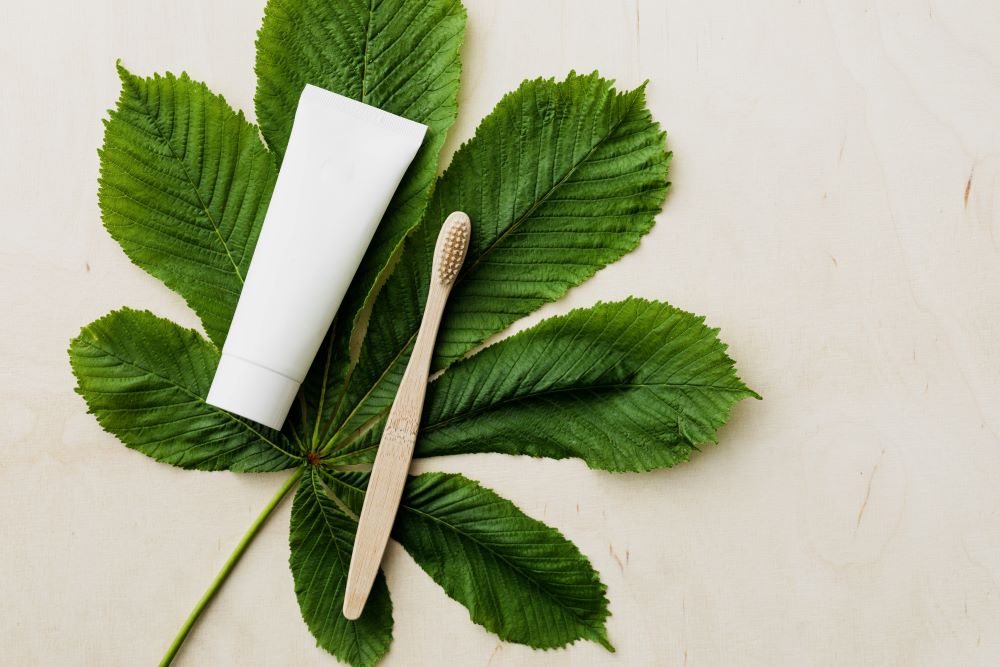Maintaining good oral hygiene is crucial for a healthy smile, and choosing the right toothpaste is an essential part of the process. Natural toothpastes have gained significant popularity in recent years, with claims of offering a safer and more sustainable alternative to conventional options.
We will delve into different types of natural toothpastes, exploring their ingredients and the factors to consider when selecting the best natural toothpaste for your specific needs. Ensuring optimal oral health without compromise.
Types of Natural Toothpastes
- Baking Soda Toothpaste
- Herbal Toothpaste
- Clay Toothpaste
Baking Soda Toothpaste:
Baking soda toothpaste is one of the most widely recognized types of natural toothpaste. Known for its mild abrasive properties, baking soda gently removes surface stains and helps neutralize acidic conditions in the mouth. This type of toothpaste is ideal for individuals with sensitive teeth or gums, as it typically lacks harsh chemicals found in traditional toothpastes. Baking soda toothpaste also offers a fresh taste, leaving the mouth feeling clean and refreshed.
Herbal Toothpaste:
Herbal toothpaste harnesses the power of nature by incorporating plant-based ingredients known for their oral health benefits. Common herbs used in these toothpastes include neem, clove, peppermint, and tea tree oil. Neem possesses antimicrobial properties, clove has a numbing effect, peppermint freshens breath, and tea tree oil helps combat bacteria. Herbal toothpaste offers a natural alternative to conventional toothpaste, appealing to those seeking a more holistic approach to oral care.
Clay Toothpaste:
Clay toothpaste is a unique option that utilizes natural clays, such as kaolin or bentonite, as the primary cleansing agents. These clays have a gentle abrasive quality that helps remove plaque and surface stains while being non-damaging to tooth enamel. Clay toothpaste also contains minerals that can support tooth remineralization and maintain a healthy pH balance in the mouth. It provides a natural cleansing experience and is suitable for individuals with sensitive teeth or those looking to avoid chemicals commonly found in conventional toothpaste.
Choosing the Best Natural Toothpaste:
1. Look for fluoride alternatives:
Many natural toothpastes do not contain fluoride, a mineral known for its cavity-fighting properties. If you prefer a fluoride-free toothpaste, look for alternatives that contain xylitol, a natural sugar substitute that helps prevent tooth decay.
2. Read the ingredient list:
Ensure the toothpaste does not contain artificial sweeteners, sulfates, parabens, or harsh abrasives. Look for natural ingredients like essential oils (e.g., peppermint, tea tree), herbal extracts, and naturally derived sweeteners (e.g., stevia).
3. Consider your dental needs:
Select a toothpaste that addresses your specific oral health concerns. For example, if you have sensitive teeth, opt for a toothpaste with desensitizing ingredients like potassium nitrate or strontium chloride. If you struggle with gum issues, choose a toothpaste with antibacterial properties or herbal extracts like neem or myrrh.
4. Taste and texture preferences:
Natural toothpastes come in various flavors and textures. Consider your personal preferences when selecting a toothpaste that you’ll enjoy using regularly. Common flavors include mint, cinnamon, citrus, and herbal blends.
5. Certifications and reviews:
Look for toothpaste brands with certifications from reputable organizations like the Natural Products Association or the Environmental Working Group.

Additionally, read reviews and feedback from other users to gauge the effectiveness and overall satisfaction with the toothpaste.
Natural toothpastes offer a range of options for individuals seeking an alternative to conventional toothpaste. Baking soda toothpaste, herbal toothpaste, and clay toothpaste are just a few examples of the diverse choices available. When selecting the best natural toothpaste for your needs, consider factors such as ingredients, dental requirements, taste preferences, and certifications.
Remember, maintaining good oral hygiene is essential, regardless of the type of toothpaste you choose. Regular brushing, along with flossing and regular dental check-ups, will help ensure a healthy smile and optimal oral health for years to come. So go ahead, explore the natural toothpaste options and find the one that suits you best!
